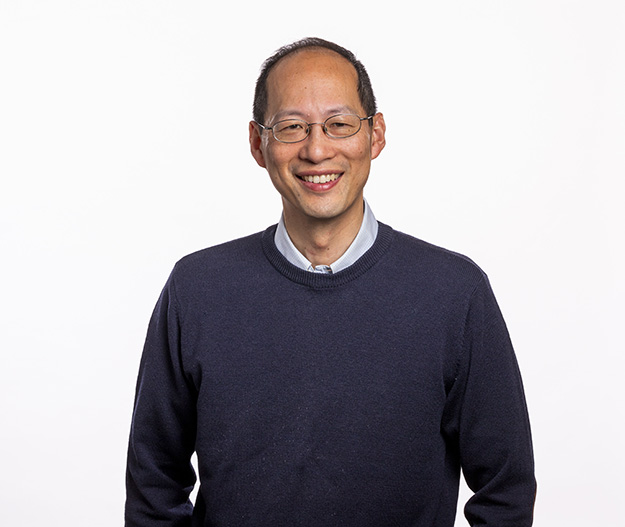We are pleased to share subject-specific collections of our most popular Chemical Science content published in the last year. These collections are designed to highlight some of the exceptional research published in Chemical Science – and like all Chemical Science articles, they are free to access and read from anywhere in the world with no restrictions.
We hope you enjoy reading our selections of 2025 most popular articles in the collections below.
Analytical ChemistryFeaturing contributions on single-molecule detection, nanopores, NIR probes, and NMR spectroscopy amongst other topics in the area of analytical chemistry. |
Bioinorganic ChemistryOur most popular bioinorganic chemistry articles include enzyme electrocatalysis, bioinorganic spectroscopy, and enzymatic pathways. |
CatalysisIncluding research articles on water splitting, CO2 conversion, ammonia synthesis, enzyme mimics and C-H bond functionalisation. |
||
Chemical BiologyRanging from recent advances in amyloid-β aggregation, long oligonucleotides, molecular glues to pathway inhibition. |
Energy ConversionCovering solar cells, photocatalysis, thermoelectric materials and water electrolysis and other topics. |
Energy StorageHighlighting developments in batteries and alternative energy storage technologies, such as supercapacitors and hydrogen storage. |
||
Inorganic ChemistryIncluding single molecule magnets, multiple bonds, and boron chemistry, among many other topics. |
Inorganic MaterialsFeaturing NLO and ferroelectric materials, superionic conduction, and chiral-induced spin selection, among other topics. |
Machine LearningDetailing developments including LLMs and autonomous agents, AI reaction simulations and machine-learned force fields. |
||
NanoscienceHighlighting work on nanocarbons and carbon dots, atomically precise metal nanoclusters, and catalysts. |
 |
Organic MaterialsCovering developments in organic optical materials, molecular switches, polycyclic aromatic hydrocarbons and more. |
||
Organic MethodologyDetailing research focused on methodology and mechanistic insights, including AI-enabled retrosynthesis and multi-ligand catalytic reactions. |
Organic SynthesisIncluding bicyclobutanes, chiral lactams, electrochemical and photocatalytic reactions and spirocyclic compounds. |
PhotochemistryHighlighting photocatalysis, photoswitches, AIEgens, photoactive molecular liquids and luminescent materials among other topics. |
||
Physical ChemistryNew research on polaritons, reactions in microdroplets, ultrafast spectroscopy and photophysics and other topics. |
PolymersHighlighting our most popular articles in polymer chemistry including ultra-high molecular weight polymers, chemical upcycling and backbone editing. |
Porous MaterialsIncluding separation with zeolites, recovery of precious metals, MOFs as catalysts and AI for the discovery of new porous materials. |
||
Sensing & ImagingPresenting fluorescent probes, sensing and NIR-II imaging-guided cancer therapy among many other research. |
Supramolecular ChemistryDetailing dynamic covalent cages, supramolecular polymers and rotaxane dendrimers among other topics. |
Theoretical & Computational ChemistryCovering tools for predicting regioselectivity, aromaticity via quantum tunnelling, and the allowed and forbidden classification of organic reactions. |
The Chemical Science Lectureship is now open! Find out how to nominate researchers in the area of machine learning, digital chemistry and automation and that have published in Chemical Science in the last five years here.
Submit to Chemical Science today! Check out our author guidelines for information on our article types and find out more about the advantages of publishing in a Royal Society of Chemistry journal.
Keep up to date with our latest articles, reviews, collections & more by following us on social media (BlueSky, LinkedIn, Facebook), and browse the articles in our latest issues by signing up to our E-Alerts.












































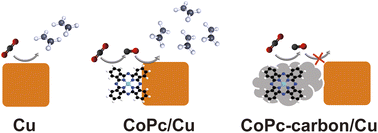



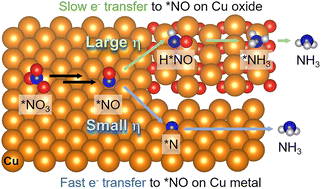









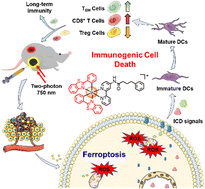













![[double bond, length as m-dash]](https://www.rsc.org/images/entities/char_e001.gif) C isomers
C isomers![Graphical abstract: High-throughput single-cell mass spectrometry enables metabolic network analysis by resolving phospholipid C [[double bond, length as m-dash]] C isomers](https://pubs.rsc.org/en/Image/Get?imageInfo.ImageType=GA&imageInfo.ImageIdentifier.ManuscriptID=D3SC06573A&imageInfo.ImageIdentifier.Year=2024)




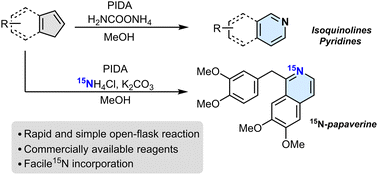
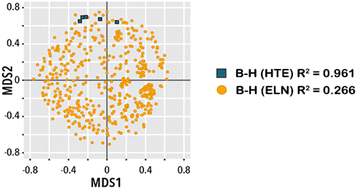
![Graphical abstract: 1,2-Disubstituted bicyclo[2.1.1]hexanes as saturated bioisosteres of ortho-substituted benzene](https://pubs.rsc.org/en/Image/Get?imageInfo.ImageType=GA&imageInfo.ImageIdentifier.ManuscriptID=D3SC05121H&imageInfo.ImageIdentifier.Year=2023)
![Graphical abstract: Synthesis of polysubstituted bicyclo[2.1.1]hexanes enabling access to new chemical space](https://pubs.rsc.org/en/Image/Get?imageInfo.ImageType=GA&imageInfo.ImageIdentifier.ManuscriptID=D3SC03083K&imageInfo.ImageIdentifier.Year=2023)


![Graphical abstract: Lemniscular carbon nanohoops with contiguous conjugation from planar chiral [2.2]paracyclophane: influence of the regioselective synthesis on topological chirality](https://pubs.rsc.org/en/Image/Get?imageInfo.ImageType=GA&imageInfo.ImageIdentifier.ManuscriptID=D2SC06825G&imageInfo.ImageIdentifier.Year=2023)


![Graphical abstract: 2,5-disubstituted bicyclo[2.1.1]hexanes as rigidified cyclopentane variants](https://pubs.rsc.org/en/Image/Get?imageInfo.ImageType=GA&imageInfo.ImageIdentifier.ManuscriptID=D3SC02695G&imageInfo.ImageIdentifier.Year=2023)
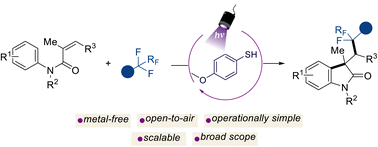

![Graphical abstract: Lewis acid catalyzed [4+2] annulation of bicyclobutanes with dienol ethers for the synthesis of bicyclo[4.1.1]octanes](https://pubs.rsc.org/en/Image/Get?imageInfo.ImageType=GA&imageInfo.ImageIdentifier.ManuscriptID=D4SC02767A&imageInfo.ImageIdentifier.Year=2024)
![Graphical abstract: Palladium-catalyzed decarboxylative (4 + 3) cycloadditions of bicyclobutanes with 2-alkylidenetrimethylene carbonates for the synthesis of 2-oxabicyclo[4.1.1]octanes](https://pubs.rsc.org/en/Image/Get?imageInfo.ImageType=GA&imageInfo.ImageIdentifier.ManuscriptID=D4SC02998D&imageInfo.ImageIdentifier.Year=2024)
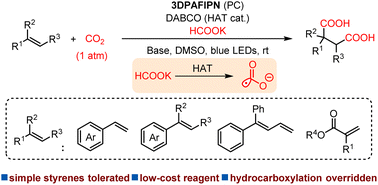

![Graphical abstract: De novo synthesis of inherently chiral heteracalix[4]aromatics from enantioselective macrocyclization enabled by chiral phosphoric acid-catalyzed intramolecular SNAr reaction](https://pubs.rsc.org/en/Image/Get?imageInfo.ImageType=GA&imageInfo.ImageIdentifier.ManuscriptID=D3SC06436K&imageInfo.ImageIdentifier.Year=2024)
